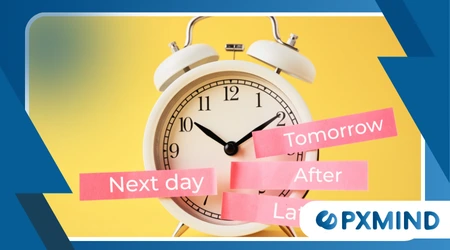Mindhacks to Overcome Procrastination

mindhacks to overcome procrastination. Are you tired of the nagging feeling of undone tasks, the constant battle with self-sabotage?
Anúncios
We’ve all been there, caught in the procrastination trap, watching opportunities slip away.
But what if there were powerful mindhacks to overcome procrastination, not just quick fixes, but profound shifts in your mental landscape?
This isn’t about willpower alone; it’s about understanding the subtle mechanisms of your brain.
We’ll explore actionable strategies to reprogram your approach to tasks. Let’s unlock your inner drive and reclaim your time.
The Procrastination Puzzle: Beyond Laziness
Procrastination is often mislabeled as laziness. It’s far more complex, a symptom of underlying psychological barriers.
Fear of failure, perfectionism, and even a lack of clarity can fuel this cycle.
Understanding these roots is the first step toward effective change
. We must confront the real reasons we delay important work. This self-awareness empowers us to choose different paths.
The Brain’s Deceptive Dance
Our brains are wired for immediate gratification, favoring easy wins over long-term gains.
This inherent bias makes tackling daunting tasks a constant uphill battle. It’s a primal urge to conserve energy.
Read here: The Best Time of Day to Learn Effectively
However, we can learn to outsmart this ancient programming. We can teach our minds to embrace discomfort for future rewards. It’s about building new neural pathways.
Mindhacks: Rewiring Your Brain for Action
The true power lies in strategically influencing our cognitive processes. These aren’t just tricks; they’re evidence-based approaches. They empower us to act decisively.
We can shift our perception of difficult tasks. Let’s dive into practical techniques that truly make a difference. These methods will transform your productivity.
The “Two-Minute Rule”: Starting Small, Winning Big
One of the most potent mindhacks to overcome procrastination is the “Two-Minute Rule.” If a task takes less than two minutes, do it immediately. This breaks inertia.
Think of replying to an email or tidying a small area. These tiny victories build momentum. They create a positive feedback loop in your brain.
“Chunking”: Making Mountains into Molehills
Overwhelmed by a large project? Break it down into smaller, manageable chunks. This makes the task seem less daunting. Each small step feels achievable.
Imagine writing a book; focus on one chapter, then one section. This approach reduces cognitive load. It makes progress tangible and motivating.

The Pomodoro Technique: Focused Bursts of Productivity
The Pomodoro Technique involves 25-minute focused work intervals, followed by short breaks. This structured approach enhances concentration. It combats mental fatigue effectively.
See how interesting: Mindhacks to Improve Your Memory for Good
It trains your brain to sustain attention for defined periods. This method promotes deep work without burnout. You’ll be amazed by your sustained output.
Pre-commitment: Binding Your Future Self
Commit to a task publicly or set self-imposed deadlines. This creates accountability, making it harder to back out. It leverages social pressure for positive outcomes.
Tell a friend your goal or set a concrete deadline with consequences. This external pressure can be a powerful motivator. It compels you to follow through.
The Power of Perception: Reframing Your Relationship with Tasks
Our emotional response to a task often dictates our willingness to start. Changing that emotional lens is a key mindhack. We can learn to see tasks differently.
Instead of dread, cultivate curiosity or even excitement. This shift in perspective is incredibly liberating. It transforms burden into opportunity.
“Task Linking”: Riding the Wave of Existing Habits
Connect a new, challenging task to an existing, ingrained habit. For example, before your first cup of coffee, tackle one small work item. This creates a natural trigger.
Your existing routine becomes a springboard for new actions. This seamless integration makes starting effortless. It’s about leveraging established neural pathways.
The “Five-Second Rule”: Act Before Your Brain Intervenes
When you have an impulse to act on something productive, count down from five and then immediately start. This technique, popularized by Mel Robbins, bypasses overthinking. It forces immediate action.
Your brain has less time to create excuses or doubts. This simple act of counting initiates forward momentum. It’s a powerful tool for breaking inertia.

Environment and Mindset: Setting the Stage for Success
Your surroundings and internal dialogue profoundly impact your productivity. Optimizing these factors is crucial for sustained action. We must cultivate a supportive ecosystem.
This holistic approach addresses both external and internal barriers. It creates an environment where procrastination struggles diminish. You’ll find yourself naturally more inclined to act.
Eliminate Distractions: Creating Your Productivity Sanctuary
A cluttered environment often leads to a cluttered mind. Identify and remove common distractions. This could mean turning off notifications or closing unnecessary tabs.
++ The Brain on Stress: What Really Happens Inside Your Head
A dedicated, organized workspace signals focus to your brain. This intentional design fosters deep concentration. It minimizes opportunities for deviation.
Cultivate Self-Compassion: The Gentle Nudge
Be kind to yourself when you inevitably falter. Self-criticism often exacerbates procrastination, creating a cycle of guilt. Instead, practice self-compassion.
Acknowledge the slip-up, then gently redirect your focus. This nurturing approach encourages perseverance. It builds resilience rather than shame.
Seeing Yourself Succeed
Before starting a task, mentally rehearse its completion. Visualize yourself successfully finishing it and enjoying the positive outcome. This primes your brain for success.
This mental preparation boosts confidence and reduces anxiety. It makes the actual task seem more achievable. It’s a powerful tool for priming your brain.
Transforming Procrastination into Progress
Consider the story of a student, Alex, who struggled immensely with term papers. The sheer volume of work felt paralyzing.
Alex would often wait until the last minute, sacrificing quality and sleep.
Applying the “chunking” method, Alex began to tackle papers one paragraph at a time. The “Pomodoro Technique” helped maintain focus.
Slowly, the overwhelming task became manageable. Alex not only completed papers on time but also with improved quality.
This transformation wasn’t about newfound discipline; it was about smart strategies.
Another example is Sarah, a freelance graphic designer, who consistently delayed outreach to new clients. This procrastination directly impacted her income.
Sarah implemented the “Two-Minute Rule” for initiating contact – simply drafting the first sentence of an email. This tiny step often led to completing the entire message.
For larger outreach goals, she applied the “pre-commitment” strategy, telling a peer she’d send out five proposals by week’s end.
This accountability was a strong driver. Sarah’s client base grew significantly, proving that small, strategic changes yield substantial results.
These aren’t just theoretical concepts; they are blueprints for real-world change.
The Neurochemistry of Action: Dopamine’s Role
Understanding the role of dopamine, the “reward chemical,” is key to mindhacks to overcome procrastination.
Our brains release dopamine when we anticipate pleasure or reward. When we procrastinate, we often seek immediate dopamine hits from distractions.
By breaking down tasks and celebrating small wins, we create mini-dopamine rushes.
This positive feedback loop trains our brains to associate productive work with reward. This reinforces desirable behaviors, making them more appealing.
| Mindhack Technique | Primary Psychological Mechanism | Outcome |
| Two-Minute Rule | Reduces friction, builds momentum | Overcomes inertia, promotes small wins |
| Chunking | Reduces perceived task size | Lessens overwhelm, increases approachability |
| Pomodoro Technique | Structured focus, manages fatigue | Enhances concentration, prevents burnout |
| Pre-commitment | External accountability | Increases follow-through, reduces avoidance |
| Task Linking | Habit stacking, automation | Creates effortless starting, leverages routines |
| Five-Second Rule | Bypasses overthinking | Promotes immediate action, breaks inertia |
| Eliminate Distractions | Optimizes environment for focus | Increases concentration, reduces diversions |
| Self-Compassion | Reduces negative self-talk | Fosters perseverance, builds resilience |
| Visualization | Primes brain for success, reduces anxiety | Boosts confidence, makes task seem achievable |
The Procrastination Epidemic: A Modern Challenge
Procrastination isn’t a new phenomenon, but it has intensified in our hyper-connected world.
The constant availability of distractions, from social media to endless entertainment, offers immediate escapes. This makes delaying important work easier than ever.
However, the consequences remain the same: missed opportunities, increased stress, and unfulfilled potential.
According to a 2019 study published in the Journal of Behavioral Decision Making, approximately 20% of adults are chronic procrastinators.
This figure is significantly higher than previous estimates, suggesting a growing challenge in modern society.
This highlights the urgent need for effective mindhacks to overcome procrastination.
Sustaining Your Momentum
Overcoming procrastination is not a one-time event; it’s an ongoing journey.
Just as a sailor constantly adjusts sails to catch the wind, you’ll need to continuously refine your strategies. The key is consistent application and adaptation.
What if embracing discomfort was your superpower, turning daunting tasks into thrilling challenges?
Remember, every small step forward builds lasting change. Embrace the process, learn from setbacks, and celebrate your victories. Your productive future awaits.
Frequently Asked Questions
What’s the biggest reason people procrastinate?
Procrastination often stems from a fear of failure, perfectionism, or feeling overwhelmed by a task’s size or complexity. It’s rarely about laziness.
Can procrastination be a good thing?
Occasionally, “active procrastination” where you complete less urgent tasks to avoid a major one can be seen, but generally, it leads to stress and missed opportunities. True productivity comes from intentional action.
How quickly can I see results from these mindhacks?
Some mindhacks, like the “Two-Minute Rule,” can show immediate results. Others, like building new habits, require consistent practice over time, but you’ll likely feel a shift within a few days to weeks.
Is it possible to completely stop procrastinating?
While eliminating procrastination entirely might be an unrealistic goal for most, significantly reducing its impact and developing powerful coping mechanisms is entirely achievable. It’s about progress, not perfection.
What if I try these techniques and still struggle?
It’s important to be patient and experiment. If one technique doesn’t resonate, try another. Consider seeking professional guidance if chronic procrastination significantly impacts your life and well-being.
